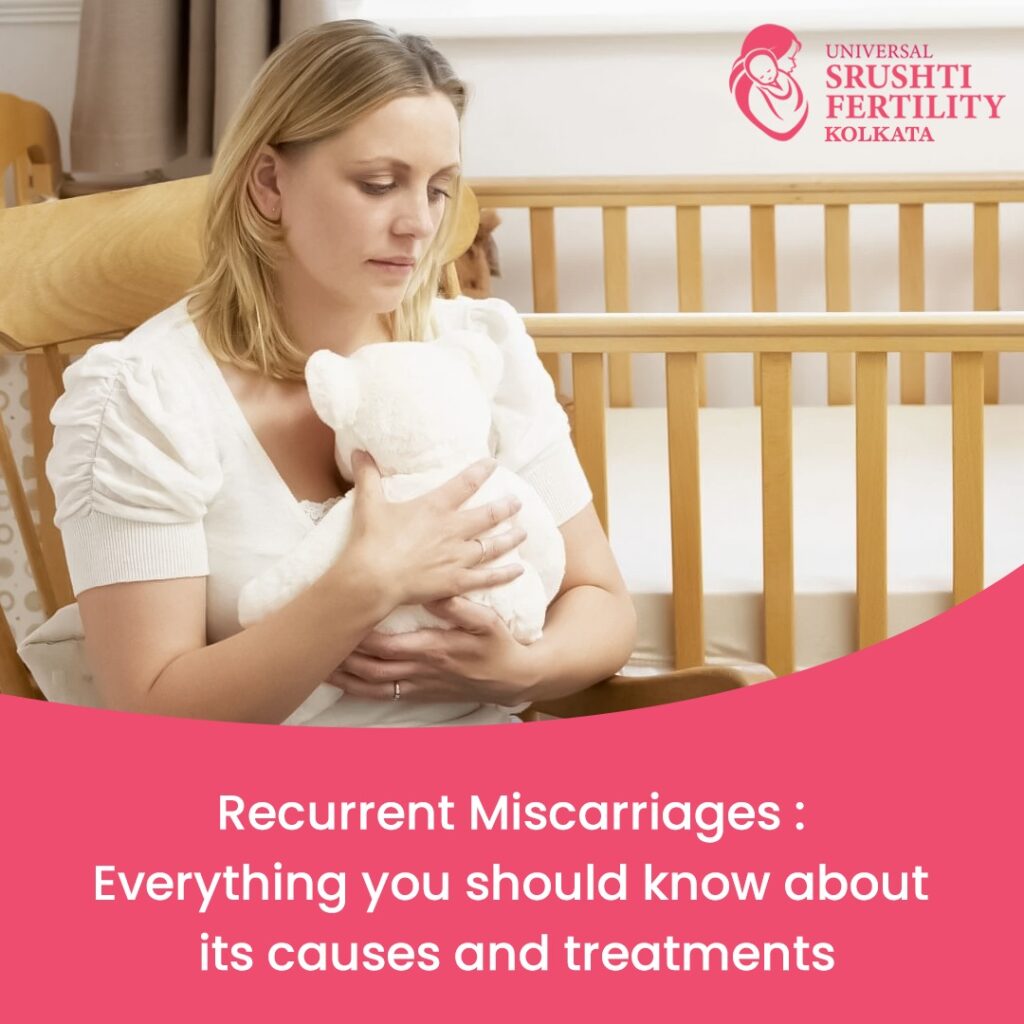
Recurrent Miscarriages: Everything you should know about its causes and treatments
Miscarriage, which is defined as the loss of a pregnancy before 20 weeks of gestation, occurs in about 15% of pregnancies. Miscarriages are most common in the first 12 weeks of pregnancy.
What is recurrent miscarriage?
Miscarriage is a clinically acknowledged pregnancy that ends involuntarily before 20 weeks A clinically recognized pregnancy is one that has been visible on an ultrasound or that has been identified as pregnant tissue following a miscarriage.Recurrent miscarriage or recurrent pregnancy loss is traditionally described as three or more consecutive miscarriages.
What causes recurrent miscarriage?
- In most cases, if the embryo is not genetically fit pregnancy ends in miscarriage. This may be because of some genetic problem with anyone of the parents. Sometimes even the parents might not be aware of those causes.
- Increasing maternal age is linked to a higher incidence of miscarriage, which is assumed to be caused by low egg quality, which leads to chromosomal (genetic) abnormalities. In some cases, the mother or father may have a minor genetic abnormality, but the baby may be more seriously damaged, resulting in miscarriage.
- Miscarriage can sometimes be caused by an anomaly in the uterus (womb), lack of blood flow to the pregnancy or inflammation. Some women are born with an irregularly shaped uterus, and others develop abnormalities in their uterus over time.
- Recurrent pregnancy loss may also be caused by a woman’s immune system. Hormone imbalances, such as thyroid dysfunction, can potentially cause pregnancy loss.
Treatment
- Some surgeries can be done to fix uterine problems like extra tissues and fibroids.
- Blood-thinning medicines can be used in cases of autoimmune and women with clotting issues.
- For genetic abnormalities, we can test the embryos before transferring them to the uterus. This is called pre-implantation genetic screening. With this, we can identify the best embryos that are genetically perfect and hence reduce the chances of miscarriage.
Treatment is based on an individual case. Each case is different and so are the causes. Visit your fertility doctor. So that your causes can be diagnosed and you could get the best treatment possible.
